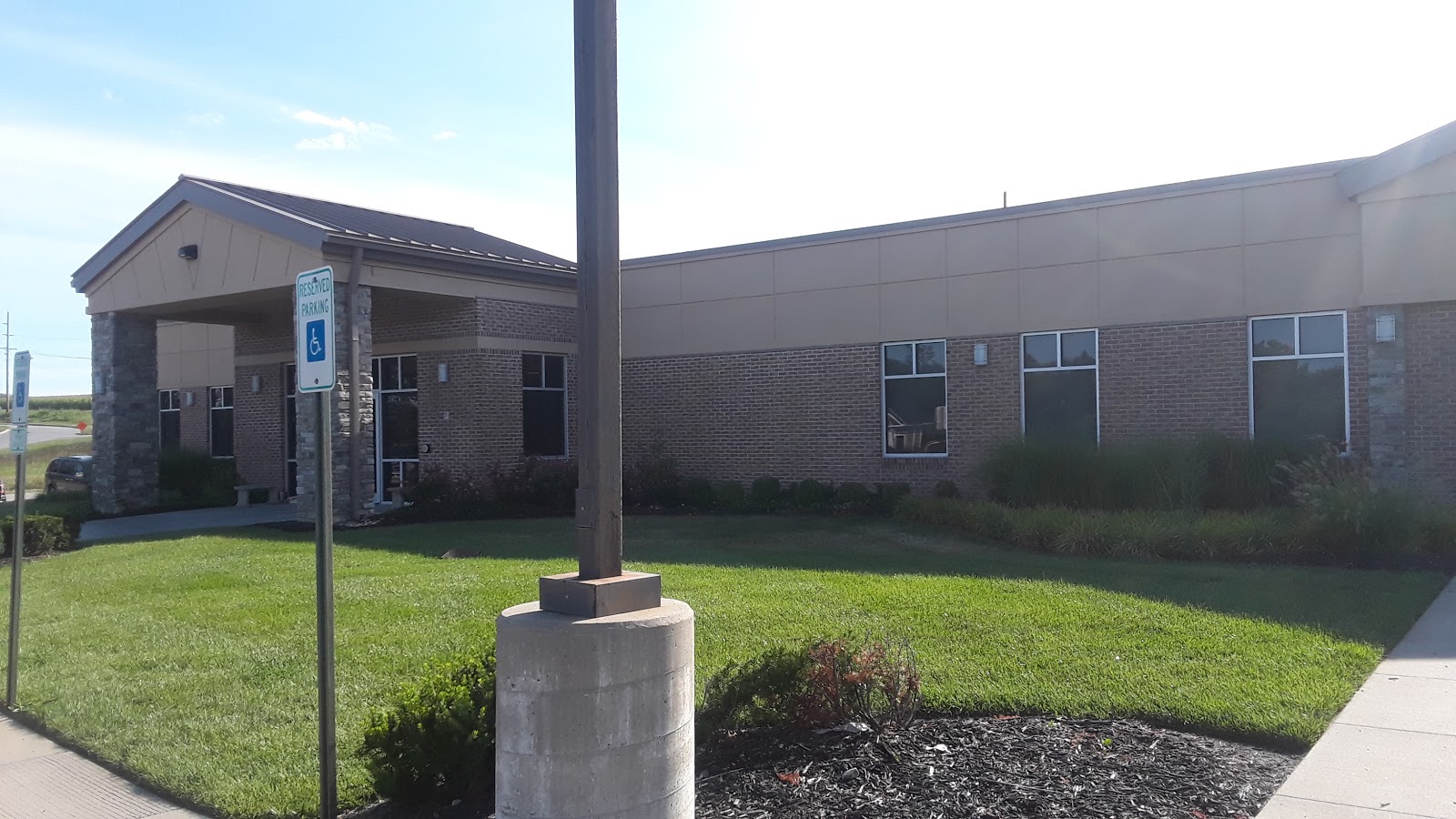Kansas City VAMC - Excelsior Springs CBOC
Overview
Kansas City VAMC - Excelsior Springs CBOC is a substance abuse treatment center for people seeking treatment near Clay County. As part of their treatment modalities for recovery, Kansas City VAMC - Excelsior Springs CBOC provides individual psychotherapy, group counseling, and family counseling during treatment. Kansas City VAMC - Excelsior Springs CBOC is located in Excelsior Springs, Missouri, accepting cash or self-payment for treatment.
Kansas City VAMC - Excelsior Springs CBOC at a Glance
Payment Options
- Cash or self-payment
- State-financed health insurance plan other than Medicaid
- Federal military insurance (e.g., TRICARE)
- Private health insurance
- Per session
Assessments
- Comprehensive mental health assessment
- Comprehensive substance use assessment
Age Groups
- Young adults
- Adults
Operation
- State government
Accreditations
The Joint Commission:

The Joint Commission accreditation for addiction and behavioral health is a prestigious recognition signifying a facility's commitment to delivering high-quality care and safety for individuals dealing with substance abuse and mental health issues. It involves rigorous evaluations and assessments, ensuring patients receive evidence-based treatment and exceptional care. This accreditation demonstrates a facility's dedication to continuous improvement and ethical practices, building trust among patients and healthcare professionals seeking top-tier addiction and behavioral health services.
Effective date: 01/27/2016
Registration: 8354
Treatment At Kansas City VAMC - Excelsior Springs CBOC

Conditions Treated
Mental health treatment:
Mental health treatment involves various therapies and support services provided by licensed professionals to address mental health issues. These interventions, which can include therapy, medication, and holistic approaches, aim to enhance well-being, improve coping, and empower individuals to lead fulfilling lives. It's personalized, comprehensive care for mental health challenges.
Substance use treatment:
Substance use rehabilitation is a comprehensive treatment approach designed to assist individuals struggling with addiction to drugs or alcohol. This form of rehabilitation addresses both the physical dependency, often starting with detoxification, and the psychological triggers, using various therapeutic methods. The objective is to empower individuals to achieve and maintain sobriety, while equipping them with the tools and coping strategies needed to reintegrate into society and lead a substance-free life.
Co-occurring Disorders:
Dual-diagnosis rehabilitation centers often offer the most suitable approach for addressing concurrent mental health and substance abuse issues. These facilities typically employ a team of medical and behavioral specialists who utilize a variety of interventions and create a conducive healing environment to support your journey toward lasting recovery. Their comprehensive treatment approach typically encompasses evidence-based therapies such as cognitive-behavioral therapy, recovery support meetings, 12-step facilitation, psychoeducation, skills training, and group therapy to help you achieve and maintain long-term wellness.

Levels Of Care
Intensive outpatient treatment:
IOP, or Intensive Outpatient, is a structured level of care for addiction, mental health, or other conditions. Unlike inpatient care, it allows individuals live at home and maintain daily responsibilities. They attend multiple weekly sessions totaling 9-20 hours, including individual and group therapy, family counseling, and skill-building classes for symptom management and relapse prevention.
Aftercare:
Aftercare refers to the structured support and programs offered to individuals after completing an initial treatment phase for substance abuse or other disorders. Recognizing that recovery is an ongoing process, aftercare provides continued counseling, skill-building, group therapy, and resources to help individuals maintain sobriety, manage triggers, and reintegrate into daily life, reducing the risk of relapse and ensuring long-term success in recovery.
Outpatient:
Outpatient treatment in a rehab center offers structured therapeutic services for individuals seeking recovery without full-time residential admission. Unlike intensive outpatient programs, which demand more frequent and longer sessions, standard outpatient care provides a more flexible approach, allowing participants to maintain daily activities and responsibilities while undergoing treatment.

Treatment Modalities
Individual psychotherapy:
Individual therapy is a one-on-one therapeutic interaction between a therapist and a client to address personal challenges, foster self-awareness, and promote mental, emotional, and behavioral growth. This setting provides a confidential and supportive environment for individuals to explore their thoughts, feelings, and behaviors, identify goals, and develop coping strategies. Individual therapy can be beneficial for a range of concerns, including anxiety, depression, stress management, relationship issues, and life transitions.
Group counseling:
Group Counseling is a therapeutic approach where individuals come together under the guidance of a trained counselor to share experiences, offer support, and gain insights. This collective format promotes mutual understanding and growth, allowing participants to learn from one another's perspectives and challenges.
Family counseling:
Family counseling is a therapeutic approach that addresses the dynamics, interactions, and challenges within a family unit. Through guided discussions and interventions, a trained counselor helps family members understand one another, resolve conflicts, improve communication, and strengthen their bonds. This form of therapy can be beneficial for families facing transitions, stressors, or behavioral issues, promoting understanding and facilitating positive change in the familial environment.
Marital/couples counseling:
Whether a marriage or other committed relationship, an intimate partnership is one of the most important aspects of a person's life. Drug and alcohol addiction affects both members of a couple in deep and meaningful ways, as does rehab and recovery. Couples therapy and other couples-focused treatment programs are significant parts of exploring triggers of addiction, as well as learning how to build healthy patterns to support ongoing sobriety.
Life Skills:
Life skills training encompasses a comprehensive set of abilities essential for individuals to thrive in society. These encompass time management, career guidance, financial acumen, and effective communication. In the context of addiction recovery, true success goes beyond mere abstinence; it's about flourishing. Life skills instruction equips individuals with the practical tools needed to navigate society successfully, paving the way for a fulfilling life and, consequently, lasting sobriety.
Cognitive Behavioral Therapy:
Cognitive Behavioral Therapy (CBT) is a form of psychotherapy that emphasizes the critical role of thinking in how we feel and what we do. It aims to identify and challenge distorted or negative thought patterns and behaviors, teaching individuals to replace them with more constructive and rational beliefs. CBT is evidence-based and has been shown to be effective in treating a variety of psychological disorders, including depression, anxiety, and phobias, among others.
Trauma-related counseling:
Trauma-related counseling addresses the deeply rooted psychological wounds and distress that often coexist with substance use disorders. Recognizing that past traumatic experiences can play a significant role in the onset and persistence of addiction, this therapeutic approach aims to help individuals understand and process their trauma, develop coping skills, and work towards healing. Individuals are better equipped to achieve long-term recovery and improved mental well-being by simultaneously addressing both trauma and addiction.
Nicotine replacement:
Nicotine Replacement Therapy (NRT) is a medical treatment designed to help individuals quit smoking by providing a controlled and decreasing dose of nicotine through alternative means, such as patches, gums, or lozenges, to reduce withdrawal symptoms and cravings. This approach aids in gradually weaning off nicotine dependence while bypassing the harmful effects of smoking.
Experiential Therapy:
Experiential therapy is a form of therapy in which clients are encouraged to surface and work through subconscious issues by engaging in real-time experiences. Experiential therapy departs from traditional talk therapy by involving the body, and having clients engage in activities, movements, and physical and emotional expression. This can involve role-play or using props (which can include other people). Experiential therapy can help people process trauma, memories, and emotion quickly, deeply, and in a lasting fashion, leading to substantial and impactful healing.
Nutrition Therapy:
Nutrition therapy, aka medical nutrition therapy (MNT), treats physical, emotional, and medical conditions through diet. Specific dietary plans are designed by professional nutritionists or registered dietitians, and patients follow them in order to affect their physical and mental health positively.
Ancillary Services
Special Programs
- Active duty military
- Clients who have experienced trauma
- Persons with post-traumatic stress disorder (PTSD)
- Veterans
Contact Information
DISCLAIMER: The facility name, logo and brand are the property and registered trademarks of Kansas City VAMC - Excelsior Springs CBOC, and are being used for identification and informational purposes only. Use of these names, logos and brands shall not imply endorsement. BetterAddictionCare.com is not affiliated with or sponsored by Kansas City VAMC - Excelsior Springs CBOC.


